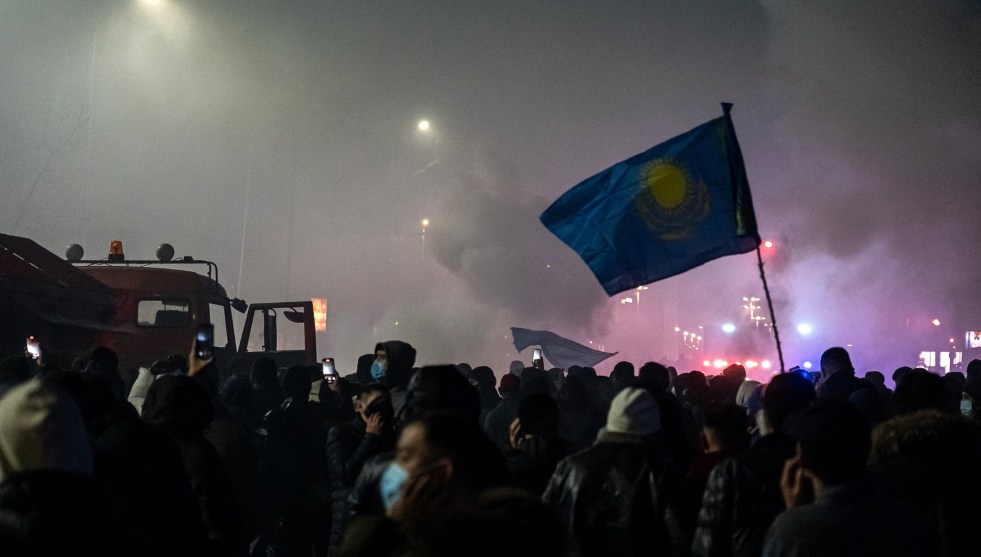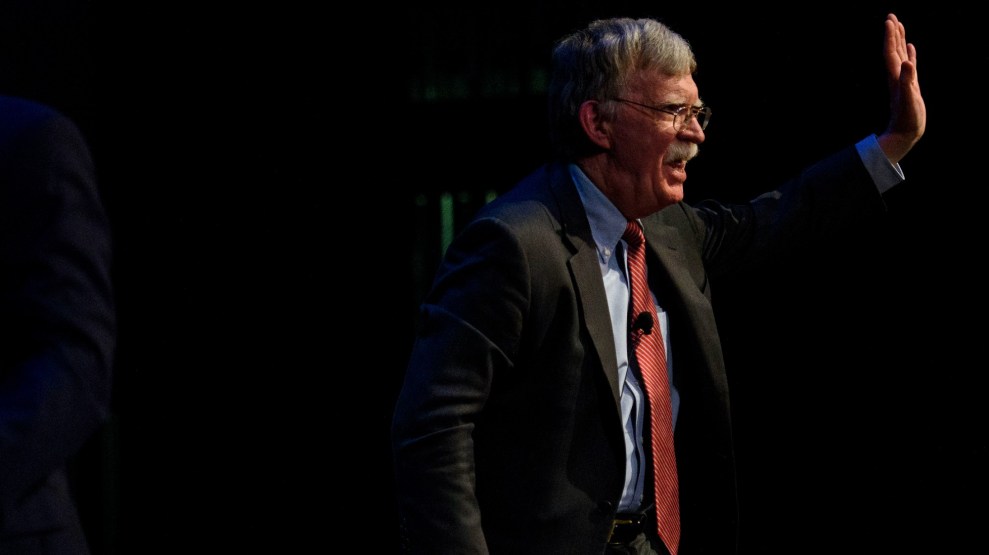
Abduaziz Madyarov/AFP/Getty
Protests raged this week across Kazakhstan, killing at least 164 people, according to government figures cited by the Associated Press.
The Central Asian country has been embroiled in turmoil since last week over an increase in fuel prices, which sparked initial protests that have now spread and reflect wider concerns over income inequality and corruption.
Since the dissolution of the Soviet Union, Kazakhstan has become one of the region’s larger, wealthier nations, due mostly to its reserves of oil, natural gas, and uranium. But that fortune has not spread evenly. The nation has an average monthly salary of less than $600. Many Kazakhstani citizens have fallen deeply into debt.
Protests challenged Kazakhstan’s ruling party, which has maintained an iron grip on the political machinery of the country for more than three decades. President Kassym-Jomart Tokayev ordered security forces on Friday to “shoot to kill without warning” as part of an escalating crackdown that has led to the detainment of nearly 6,000 people.
Tokayev, who took power from Kazakhstan’s longtime ruler in 2019, tightened control as the protests raged by firing his cabinet, imposing a state of emergency, and removing his predecessor from the state’s security council, where he still held significant sway. The status of former President Nursultan Nazarbayev is an animating concern for protesters, who have shouted “old man out,” a reference to the 81-year-old’s lingering influence.
The domestic crisis has already spiraled across borders. Tokayev invited Russia to deploy peacekeeping troops, heightening the chance that an expansion-minded Vladimir Putin will seize on the crisis to exert his country’s power over its former territory. European nations that rely on Kazakhstan for energy may also not stick to the sidelines for long.
Across the border from Kazakhstan is China’s Xinjiang region, where Xi Jinping’s government has rounded up Uyghur Muslims and sent them to concentration camps as part of a campaign of forced cultural assimilation. China has stayed out of the fray thus far, but as the Wall Street Journal noted on Sunday, ethnic Kazakhs are “among the minority groups targeted in the Xinjiang assimilation campaign” and “travel frequently across the border.”
It is too early to predict what happens next, but any geopolitical crisis involving Russia, China, and oil is not likely to resolve itself peacefully.
















